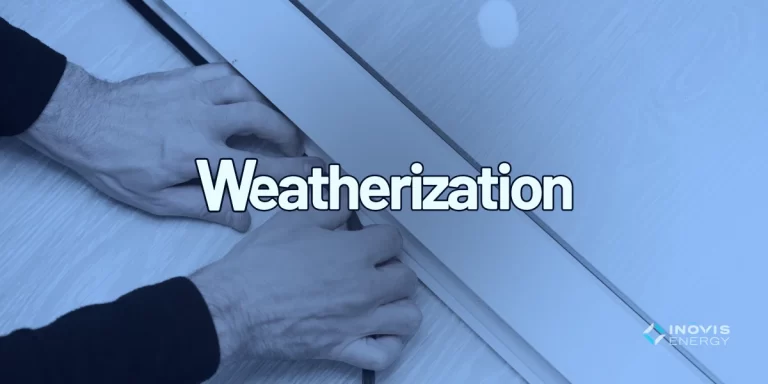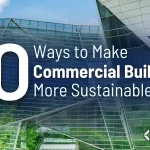Facility Weatherization Solutions to Improve Comfort and Efficiency
Home » Solutions » Building Envelope » Weatherization
Air leaks and thermal gaps in the building envelope lead to discomfort, high energy bills, and overworked HVAC systems. Weatherization solutions help facilities reduce energy loss, improve temperature control, and support sustainability goals across a wide range of building types.
Table of Contents

What Is Weatherization?
Weatherization involves sealing gaps, cracks, and penetrations in a building’s envelope to reduce air infiltration and heat loss. These improvements are especially effective in facilities with aging infrastructure, frequent door traffic, or varied occupancy schedules.
Typical weatherization measures include:
-
Air sealing around windows, doors, and mechanical penetrations
-
Adding or repairing weatherstripping and door sweeps
-
Sealing wall and ceiling leaks with caulk or foam
-
Patching envelope gaps around piping, cabling, and duct chases
-
Improving comfort zones and eliminating drafts in common areas
Weatherization is one of the most cost-effective upgrades for facilities looking to reduce HVAC runtime and improve indoor environmental quality.
Why Weatherize Your Facility?
Key Benefits:
-
Lower heating and cooling costs by 10–30%
-
Improve temperature consistency and reduce drafts
-
Reduce HVAC wear and tear by minimizing runtime
-
Support energy code compliance and decarbonization goals
-
Enhance indoor air quality by controlling infiltration
-
Increase occupant comfort and satisfaction
-
Qualify for utility or state-funded weatherization programs
How Weatherization Works
Weatherization targets the building envelope—walls, windows, doors, roofs, and foundations—where uncontrolled air exchange causes energy waste. Technicians use a combination of materials and diagnostics to:
-
Seal visible and hidden gaps with caulking or foam
-
Install or replace weatherstripping and thresholds
-
Block infiltration pathways in mechanical spaces
-
Use optional infrared or airflow testing to identify leak zones
These improvements are often completed in a matter of hours and yield immediate comfort and efficiency benefits.
How Weatherization Saves Energy
By preventing conditioned air from escaping—and outside air from entering—weatherization reduces the load on HVAC systems. This leads to:
-
Reduced gas or electric consumption for heating and cooling
-
More efficient temperature control across occupied zones
-
Extended life of HVAC units due to decreased cycling
-
Improved baseline energy performance, especially in older or mixed-use buildings
Facilities That Benefit from Weatherization
Schools, warehouses, healthcare buildings, multifamily properties, offices, and government facilities—especially those with aging infrastructure or high heating and cooling loads.
Our Weatherization Process
-
Facility Walkthrough or Audit Review – Identify envelope leaks, thermal issues, or common comfort complaints
-
Leak Detection & Prioritization – Map target areas for sealing
-
Material Selection – Choose sealing solutions based on application and durability
-
Installation – Perform sealing, sweeps, caulking, and repair work with minimal disruption
-
Follow-Up Review – Validate comfort improvements and support rebate documentation
Rebates and Funding for Weatherization Projects
Weatherization is eligible for prescriptive and custom utility incentives, especially in states with funded energy efficiency programs. Inovis helps facilities:
-
Access small business weatherization programs
-
Combine weatherization with insulation or HVAC upgrades
-
Implement phased projects aligned to capital planning cycles
These upgrades often require no design work, are easy to implement, and deliver strong return on investment.
Seal Air Leaks. Save Energy. Improve Comfort.
Weatherization is a fast, cost-effective way to improve comfort and reduce energy waste across your facility. Let us assess your building envelope and recommend targeted improvements.

